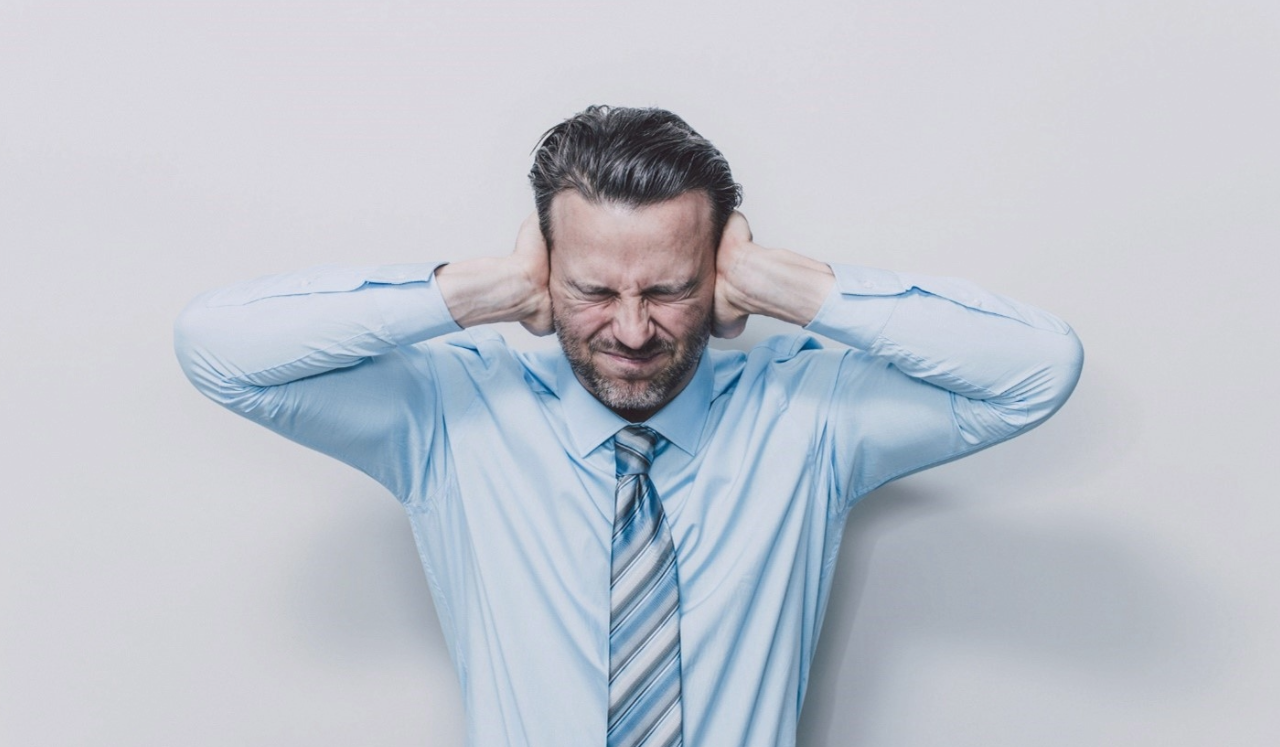Imagine sitting down with a friend or loved one for a nice meal and not being able to tune out the sounds of their chewing. The sound sends you into a state of uncontrolled annoyance, provoking anxiety and anger. These are the symptoms of misophonia, also known as “selective sound sensitivity syndrome.” It’s a condition categorized by extreme reactions to sounds, especially those from chewing, breathing or whistling.
Misophonia: A condition in which a sensitivity to everyday sounds can cause extreme anxiety.
According to Misophonia Online, some of the common triggers of the syndrome include:
- Mouth sounds and eating noises: “Ahhs” after drinking, burping, chewing, crunching (ice or other hard food), gulping, gum chewing and popping, kissing sounds, nail biting, silverware scraping teeth or a plate, slurping, sipping, licking, smacking, spitting, swallowing, talking with food in mouth, tooth brushing, flossing, tooth sucking, lip smacking, grinding teeth, throat clearing and jaw clicking.
- Breathing/nasal sounds: Grunting, groaning, loud or soft breathing, sniffling, snorting, snoring, sneezing, congested breathing, hiccups, yawning, nose whistling and wheezing.
- Vocal sounds: Humming, muffled talking, raspy voices, nasally voices, overused or repeated words such as “um” or “ah,” sibilant sounds (S, P, T, CH, K and B sounds), bad singing, gravelly voices, soft whisper-like voices and whistling.
- Moving body parts: Restless legs that keep moving, making tapping or swishing sounds, or fingers that tap endlessly.
- Environmental sounds: Clicking from texting, keyboard/mouse, TV remote or pen clicking, writing sounds, papers rustling/ripping, ticking clocks, texting and cell phone ringtone.
- Utensils/metals: Dishes clattering, fork scraping teeth, silverware hitting plates or other silverware, and rattling change in pockets.
- Plastic: Water bottle squeezing/crinkling, breaking hard plastic and bouncing balls.
- Wrappers: Plastic bags crinkling/rustling, plastic bags opening or being rubbed, and crinkling food packages, especially in the movie theater.
- Car sounds: Sitting idle for long periods of time, beep when car is locked, car doors slamming, keys banging against steering column and turn signal clicking.
- Heavy equipment noises: Lawnmowers, leaf blowers, air conditioners and chainsaws.
- Impact sounds: Other people’s voices, muffled bass music or TV through walls, doors/windows being slammed and basketball thumps.
- Animal noises: Dogs barking, bird sounds, crickets, frogs, dogs or cats licking, drinking, slurping, eating, whining, dogs scratching or biting themselves, and claws tapping.
- Baby sounds: Crying, babbling, adults using baby talk and kids yelling.
- TV: Loud TV or radio.
It is not clear whether or not misophonia is a true disorder and disagreement exists among experts. However, a recent study published by Current Biology used MRI scans to show that brains of people with misophonia reacted differently to “trigger sounds,” caused by an abnormality in the part of the brain that manages emotions.
Mild Reactions Include:
- Anxiety
- Discomfort
- Disgust
- The desire to get away
Severe Reactions Include:
- Rage
- Anger
- Panic
- Fear
“Those suffering from misophonia may have to make adjustments to their everyday lives in order to function,” said Dr. Nitin Tandon, UTHealth Houston Neurosciences neurosurgeon affiliated with the Memorial Hermann Mischer Neuroscience Institute at the Texas Medical Center and professor in the Vivian L. Smith Department of Neurosurgery at McGovern Medical School at UTHealth Houston. “They might not like to go out to restaurants, or they could end up secluding themselves from friends and family. While there isn’t a cure for the disorder, we can help our patients to manage it.”
Currently, treatments may include sound therapy or psychological counseling. However, your lifestyle can also contribute to the severity of the condition. Getting plenty of exercise and sleep, as well as managing stress can improve reactions.
If you think you may be suffering from misophonia, schedule an appointment to get screened here or call 713.704.7100.

